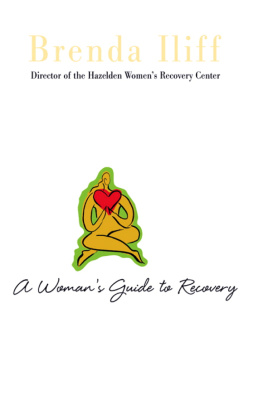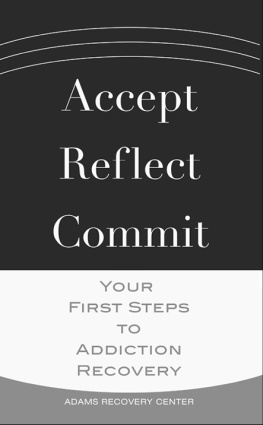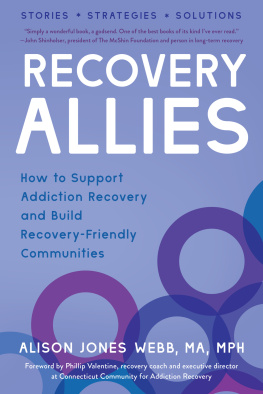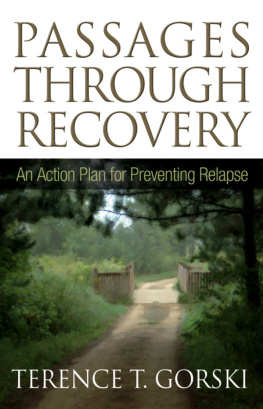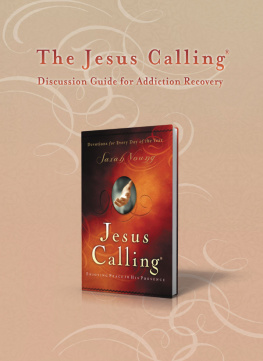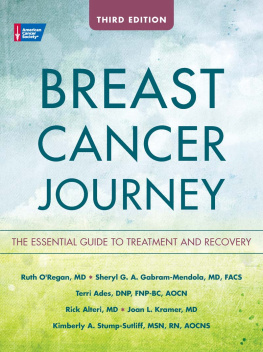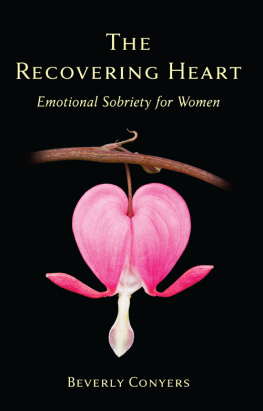A WOMANS GUIDE TO RECOVERY
A Womans Guide to Recovery
Written by Brenda Iliff
Director of the Hazelden Womens Recovery Center

Hazelden Publishing
Center City, Minnesota 55012
800-328-9000
hazelden.org/bookstore
2008 by Hazelden Foundation
All rights reserved. Published 2008
Printed in the United States of America
No part of this publication may be reproduced, stored in a retrieval system, or transmitted in any form or by any meanselectronic, mechanical, photocopying, recording, scanning, or otherwisewithout the express written permission of the publisher. Failure to comply with these terms may expose you to legal action and damages for copyright infringement.
ISBN: 978-1-59285-479-0
Library of Congress Cataloging-in-Publication Data
Iliff, Brenda.
A womans guide to recovery / written by Brenda Iliff.
p. cm.
Includes index.
ISBN-13: 978-1-59285-479-0 (softcover)
1. Women drug addictsUnited States. 2. Women alcoholicsUnited States. 3. Women alcoholicsRehabilitationUnited States. 4. Women drug addictsRehabilitationUnited States. 5. Twelve-step programsUnited States. I. Title.
HV4999.W65I53 2008
616.86'03082dc22
2007038959
Ebook ISBN: 978-1-59285-781-4
All personal stories are used with permission. Names, dates, details, and circumstances have been changed to protect anonymity.
The views expressed herein are solely those of the author. This book is not an official publication of Alcoholics Anonymous World Services, Inc., nor does it necessarily represent the policies or practices of the AA Fellowship, a program of recovery from alcoholism.
Alcoholics Anonymous, AA, and the Big Book are registered trademarks of Alcoholics Anonymous World Services, Inc.
This book is not intended as a substitute for the advice of health care professionals.
12 11 10 09 08 6 5 4 3 2 1
Cover design by Theresa Gedig
Interior design by Ann Sudmeier
Typesetting by Prism Publishing Center
:: To those who are about to find out that it never has to hurt like this againand to those who love them
Real living begins on the far side of despair.
:: JEAN-PAUL SARTRE
Contents
What Is Addiction?
Women and Addiction Historically
What Causes Addiction?
Whats So Different about Women and Addiction?
Addiction Is a Disease
What Are the Symptoms of Addiction?
Powerlessness: The Most Powerful Place
Connection
The Program
Principles
Whats Different for Women in Recovery?
Safety
When All That Changes Is Everything
Recovery Is Our Number One Priority
More Issues in Early Recovery
Special Concerns in the First Month
Making Connections through Meetings and Sponsors
Structure
Keep It Simple
What Is Spirituality?
Why Do We Need Spirituality?
Living Spirituality
Practical yet Radical
Ongoing Process
Working the Twelve Steps
A Purposeful Life
Getting Stuck
Feelings in Early Recovery
Feelings Are Not Facts
Know and Own Our Feelings
Examine Our Thinking
Other Tools
Feelings Recovery-Style
Cross-Addiction: What Is It?
Cross-Addiction to Other Drugs
Cross-Addiction to Other Behaviors or Substances
Cross-Addiction: A Relapse Concern
Addiction Is Addiction
What Is Self-Care?
HALT
Physical Self-Care
Mental Health Self-Care
Managing Our Time
Just for Today
Addiction and Relationships
Recovery and Relationships
Patterns of Relating
Recovery Changes Relationships
Healthy Relationships
Boundaries
The Principles of Recovery and Relationships
Family
What Is Relapse?
Relapse Is a Process
Myths about Relapse
High-Risk Situations
Relapse Prevention
What If We Use Again?
Change Is a Constant
Possible Concerns in Ongoing Recovery
How Free Do You Want to Be?
Promises of Radical Change
Hear the Flutter?
Acknowledgments
I wish to express my gratitude to those who have gone before me and whose commitment to recovery makes possible so many stories like those of the women in this book as well as my own. While there are many who deserve to be named in this book, due to the anonymity of the Twelve Step fellowship they will remain nameless, but their stories and wisdom are included with a swell of gratitude. They have touched this world in a powerful way.
I wish to express thanks to Rebecca Post, a former editor at Hazelden, who suggested this book. She helped me realize the dream of a lifetime: to pass on information about the freedom of recovery to women seeking help. Karen Chernyaev, who edited the book, framed and guided the process. Her knowledge of both the publishing and addiction fields glowed as she provided guidance. The real backbone of this book was provided by the step-by-step work of Pat Samples, who took what I wrote and rewrote and kindly suggested changes. Her ability to give feedback in a kind yet helpful manner is a living example of wisdom and humility. Working with the experience and skill of these three women was a true gift.
Personally, I wish to express gratitude to my parents, family, and longtime friend Wendy, who have made the lifelong journey with me, every step of the way. Several decades, many years, one step at a time. May others be so blessed.
Introduction
This is a book of great hope. Its purpose is to assist women in their recovery from chemical dependency.
Addiction is messy. Very messy. Like a hurricane, it leaves massive devastation in its path. The addict spins helplessly at the mercy of the storm, losing peace of mind and self-respect. She may even lose her friends, loved ones, reputation, job, health, freedom, or life. Those closest to herfamily, friends, co-workers or schoolmates, community members, and othershelplessly watch her self-destruction, deeply pained over their inability to stop it. Meanwhile, they may pay dearly for her lies, failures, cruelty, and recklessness. So does society as a whole. The hurricane of addiction is no respecter of persons. It hurts those in its path and even those nearby. No one escapes unscathed.
The good news is that, despite the terrible devastation of addiction, many women have found a way out. There is a solution! Regardless of their drug of choice, lifestyle, mental and physical concerns, economic concerns, sexual orientation, race, culture, religion, or other differences, women are able to achieve freedom from the mess of addiction. If youre a woman whose use of alcohol or other drugs is creating havoc in your lifeeven in small waysyoull find hope in these pages. If youre a person who cares about an addict, this book will help you understand why its so hard for her to stop using and assure you that she can recover.
Although this book is written for women, its not meant to be exclusive or to create a separation between women and men. In fact, the core elements of addiction and recovery are the same for every addict, male or female. For that reason, addiction is often called the great equalizer. Yet, just as we take into account many other factors in dealing with someones addiction and recovery, so must we consider the persons gender.
Certain issues unique to women affect how they become addicted and how they recover. Women get started down the addiction path for different reasons than men do. Their addiction progresses faster, and generally their body and spirit have suffered more damage by the time theyre at the door of recovery. In addition, women typically touch more lives by their addiction since they are often expected to be the central stabilizing force in their families and communities. And women work on their recovery differently than men do. Because of their innate desire for connection, many women find that recovery is a natural process for them. All of these reasons have inspired the creation of this book to offer information and support to women.

